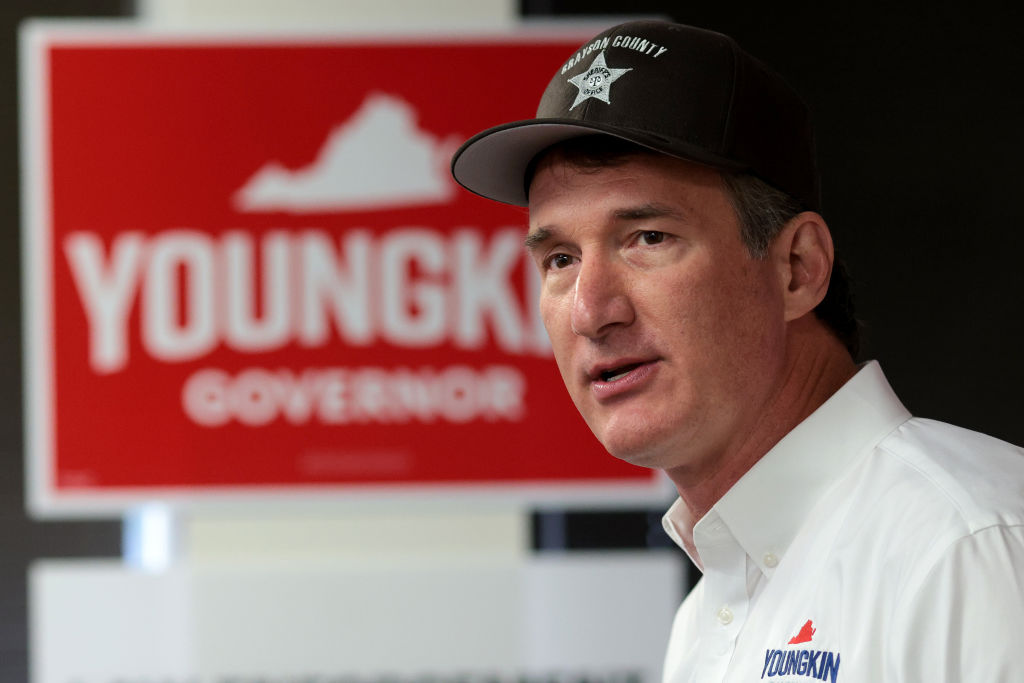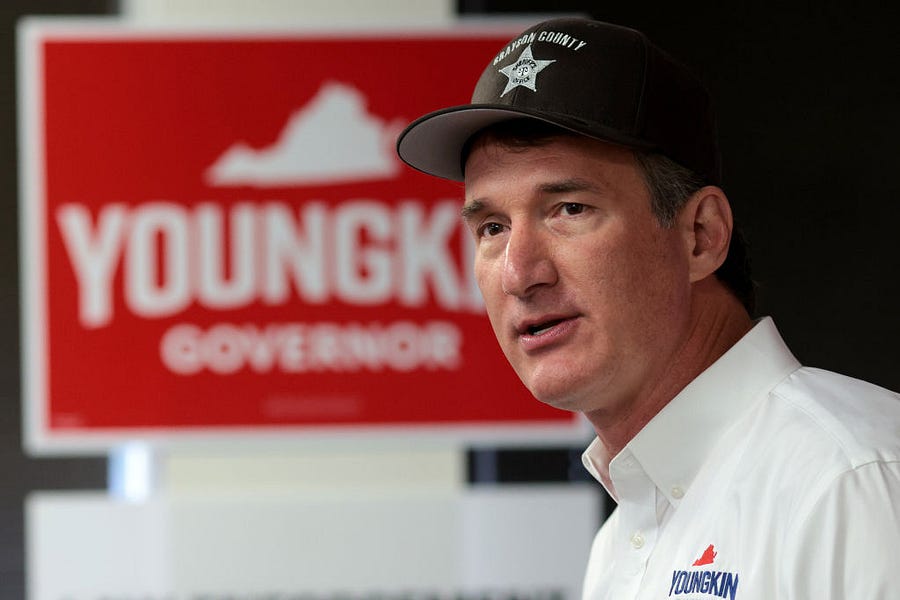Happy Friday! Congrats to the Dodgers, we guess.
Quick Hits: Today’s Top Stories
-
According to the Labor Department’s Thursday jobs report, 293,000 Americans submitted new jobless claims last week, the lowest number since March 2020. The total number of Americans who continue to receive unemployment aid also dropped at the end of last month, the Department found.
-
The commission investigating the January 6 attack on the Capitol said Thursday that it will act to hold Steve Bannon, longtime adviser to former President Donald Trump, in criminal contempt for failing to respond to a subpoena. Bannon rebuffed the committee’s request for him to appear at a deposition Thursday.
-
Some Americans who received Moderna’s COVID-19 vaccine will be eligible for a booster shot, the U.S. Food and Drug Administration decided Thursday. Senior citizens, adults with underlying health conditions, and those with jobs or living situations that put them at a heightened risk for catching the virus will be eligible. The FDA has already authorized a booster shot of Pfizer’s COVID-19 vaccine for some individuals.
-
Six people died in armed skirmishes between militant groups in Beirut, Lebanon, Thursday, raising fears about an increase of violence in the country. Gunmen from two Shiite Muslim groups used cars as cover to fire automatic weapons and hurl grenades at their rivals. The clash is a troubling sign for residents, who have watched their state’s economy sink since 2019 and their government struggle with corruption.
All Eyes on Virginia As Election Day Looms

No Republican has won a statewide race in Virginia in 12 years. First-time GOP candidate Glenn Youngkin is hoping to reverse that trend in the gubernatorial race this year against former Gov. Terry McAuliffe.
Can McAuliffe keep the governor’s mansion in Democratic hands? His polling lead has narrowed slightly in recent weeks, and most political analysts believe this race will look nothing like 2017, when current Gov. Ralph Northam beat his Republican challenger Ed Gillespie by 9 points. A CBS News survey of registered voters in Virginia conducted October 4-11 has McAuliffe with a 3 point lead, and a Fox News poll conducted October 10-13 found McAuliffe leading by 5 points, 51-46, among likely voters.
McAuliffe has a slight polling edge, but Youngkin has history on his side: Since 1977, nearly every Virginia gubernatorial candidate running against the sitting president’s party has ended up winning the general election. Interestingly enough, the sole exception to this trend was in 2013, when McAuliffe beat GOP candidate Ken Cuccinelli with Barack Obama in the White House.
With Joe Biden’s approval rates sinking, some Democrats have begun to fret about voter enthusiasm among their base. In an effort to boost momentum among progressives, McAuliffe has convinced key Democratic players—first lady Jill Biden, former President Obama, and 2018 Georgia Democratic gubernatorial candidate-turned-electoral-activist Stacey Abrams—to join him on the campaign trail this weekend.
Meanwhile, McAuliffe’s own fundraising emails have taken on a more desperate tone in recent weeks, with the campaign starting to blame “members of our grassroots team” for not “stepping up and donating right now.” (Here are the subject lines of three recent emails from McAuliffe’s press team: “Just stunned,” “Are you even reading this?” and “What the heck is going on, folks?!”)
Throughout the campaign, McAuliffe has leaned on one strategy above all others: trying to portray his Trump-endorsed opponent as a carbon copy of the 45th president. Although Youngkin warmly embraced Trump during the GOP primary, he rarely mentions the former president’s name at campaign rallies, a necessary pivot in a state that Biden won by 10 points in November. As Audrey put it in a piece last month, “Youngkin’s challenge is to present a Republican platform that’s palatable to moderates and independents—especially those who live in the state’s increasingly blue Northern Virginia suburbs—while also appealing to GOP voters who still identify with Trump.”
McAuliffe’s strategy got a boost this week following an unofficial “Take Back Virginia” rally hosted by Trump allies Wednesday, which featured an appearance by Steve Bannon and a call-in from Trump himself. “Glenn Youngkin is a great gentleman,” Trump said. “We’ve got to get him in.”
That rally attracted further criticism after attendees pledged allegiance to a flag that was billed as having been brought to the January 6 rally that preceded the storming of the Capitol. Youngkin, who did not attend the event, distanced himself from that pledge in a Thursday statement: “It is weird and wrong to pledge allegiance to a flag connected to January 6. As I have said many times before, the violence that occurred on January 6 was sickening and wrong.”
McAuliffe, meanwhile, sought to capitalize on the incident, saying that Youngkin’s disavowal didn’t go far enough:““Weird”?? Glenn – people died during the January 6th riot Donald Trump and others celebrated in your honor last night. If you can’t condemn last night’s rally and Trump’s deadly conspiracies,” he tweeted, “you don’t have the courage or character to serve as governor.”
In recent weeks, Youngkin has sought to focus the contest on education, after a sharp exchange during the second gubernatorial debate on September 28. Youngkin reminded Virginians that as governor five years ago, McAuliffe killed a bill that would have required K-12 schools to notify parents if their children’s curriculum included “sexually explicit” material. “You believe school systems should tell children what to do,” said Youngkin, who has vowed to build more charter schools and ban critical race theory in Virginia if elected. “I believe parents should be in charge of their kids’ education.”
“I’m not going to let parents come into schools and actually take books out and make their own decisions,” McAuliffe said in response. “I don’t think parents should be telling schools what they should teach.” Youngkin quickly turned that last statement into a campaign ad, and has doubled down on his support for school choice by launching a “parents matter” movement. The Fox News poll out yesterday found that Virginians favor parental input on what teachers teach, 53-43, but McAuliffe receives slightly higher marks than Youngkin on education generally, 45-43.
Youngkin has also tried to tie McAuliffe to concerns about a rise in violent crime. “Today we’re at a 20 year high murder rate,” Youngkin told a crowd of sheriffs and deputies on Thursday in McLean, Virginia. “Four of our great cities are ranked in the top 65 deadliest cities in America—Richmond at No. 11—and candidly I think it’s I think it’s racing to become No. 1 again.”
The former investment executive has curried favor from law enforcement officers across the commonwealth for his staunch support of qualified immunity, the legal doctrine that shields individual police officers from lawsuits unless the rights in question violate a clearly established law.
“It’s the worst time ever, especially in Virginia, to be in law enforcement,” said Grayson County Sheriff Richard Vaughn, who previously served as president of the Virginia Sheriff’s Association, at Thursday’s event. “We suffered through four years of Terry Mculiffe, now we’re suffering through four years of Ralph Northam with no support. It seems like the criminals have more support than law enforcement.”
Ann Dorn, the widow of a former police officer killed when responding to a looting incident during the St. Louis riots last summer, also campaigned for Youngkin at Thursday’s event. “Law enforcement doesn’t believe they’re getting the support from the politicians in their communities that they deserve,” Dorn told The Dispatch.
Heritage Foundation Names New President
Nearly a year after Donald Trump’s loss in the 2020 presidential race, it’s clear that the conservative movement is still experiencing an identity crisis. This is principally evident in the Republican Party’s ongoing refusal to acknowledge that Trump lost at all. But it can also be seen in less obvious things, like the party’s inability to muster serious opposition to marquee items of President Biden’s agenda (the $3.5 trillion budget bill, for instance) among the grassroots, who continue to direct most of their political energy toward culture war issues like critical race theory and vaccine mandates.
This makes it an important time to be in the business of shaping conservative philosophy. When Kay Cole James, the president of movement conservative think tank the Heritage Foundation, announced she would step down from the role earlier this year, the question of who would succeed her became an early temperature check on how conservatism was positioning itself going into 2022 and 2024.
In a piece for the site earlier this month, Andrew reported that Heritage was close to settling on a new president: Kevin Roberts, currently the CEO of the Texas Public Policy Foundation. Yesterday, Heritage made it official: Roberts will take the reins later this year.
“Heritage is known throughout the conservative movement and policy community as a solutions factory,” Roberts said in a statement. “As a lifelong movement conservative, I have always seen Heritage as the beacon of conservatism and of the American dream.”
Roberts is, in many ways, a statement pick for Heritage. He’s a newcomer to the D.C. conservative scene, but hails from an organization that played a prominent role in shaping the policies of Donald Trump’s presidential term. Heritage has always been strongly identified with Reaganite fusionism — bringing together social conservatives, small-government enthusiasts and national security hawks — a conservative posture that has fallen increasingly out of fashion among the ascendant populist right. But Roberts may be particularly well positioned to bridge the potentially unbridgeable gap between these factions.
Here’s how Andrew put it in his story earlier this month:
It’s easy to see why a guy like Roberts would appeal to an institution like Heritage trying to navigate the post-Trump moment. On the one hand, he’s conversant in the iconoclastic and militant language of the new populist right, with its constant undercurrent of resentment toward political and cultural elites. “What Trump captured was the absolute irritation, the frustration that Americans have with the elites in Washington who wake up each day trying to tell us what to do,” he said during a TPPF event with Texas Rep. Chip Roy last month. When speaking of the current government in D.C., Roberts refers not to the Biden-Harris administration, but to the Biden-Harris regime.
But unlike many populists on the new right, TPPF under Roberts has also maintained its longtime fierce devotion to individual liberties and a small-government approach to policymaking, along with most of the old policy planks of fusionism: old-school jeremiads about debt and deficits, prominent advocacy for school choice and a secure border and America’s energy sector, suspicion of a constantly expanding social safety net.
Worth Your Time
-
In a deeply researched exposé for The Atlantic, McKay Coppins sheds light on the victims of hedge fund Alden Global Capital’s decade-plus of buying up and gutting newsrooms across the country. “The model is simple: Gut the staff, sell the real estate, jack up subscription prices, and wring as much cash as possible out of the enterprise until eventually enough readers cancel their subscriptions that the paper folds, or is reduced to a desiccated husk of its former self,” Coppins writes. The strategy’s consequences, he explains, are felt when civic participation across the country takes a hit. “When a local newspaper vanishes, research shows, it tends to correspond with lower voter turnout, increased polarization, and a general erosion of civic engagement. Misinformation proliferates.”
-
Houssein Ronaghi, an Iranian dissident living inside the country, took to the Wall Street Journal this week to draw attention to what the Western media misses in its reporting on the Islamic Republic regime. “In Iran, we protest as loudly as we can and post videos online, but the reality doesn’t find its way into most Western media reports. Meanwhile, journalists tweet about trivia like new shopping malls and ignore the real story of what’s happening in our country. They are showing you an imaginary Iran,” Ronaghi writes. “In the real Iran, we are familiar with the long shadow of state suppression. We aren’t victims of global ignorance but of a deliberate and systematic attempt by the Islamic Republic to manipulate world opinion through apologists in the foreign media.”
Presented Without Comment
Also Presented Without Comment

Toeing the Company Line
-
In his latest Capitolism, Scott Lincicome shares part of his congressional testimony from a Consumer Protection and Commerce Subcommittee hearing Thursday on “Investing in American Jobs: Legislation to Strengthen Manufacturing and Competitiveness.” Scott argues for a number of policies to encourage innovation and foreign investment, but also acknowledges he takes a somewhat contrary view on the strength of the United States’ manufacturing sector, believing that it remains “far more competitive and resilient than is often claimed.”
-
David wades into the debates surrounding Jonah’s recent G-Files in his latest French Press, defending the idea that a conservative third party could up the political cost of Trumpism. He also offers a somber reflection on the state of the Republican Party. “I don’t trust the GOP on election integrity. I do in fact believe that it is infected almost top to bottom by a combination of conspiracists and cowards who would, in fact, try to steal an American election (again),” David writes. “I don’t trust the GOP on free speech and civil liberties. It’s a party that’s busy passing state laws that override the free speech rights of private corporations. It advocates speech codes in public schools (and sometimes beyond) to stop the spread of ideas it dislikes. It has dug in its heels in support of qualified immunity, a doctrine that permits public officials to violate the civil rights of its citizens without compensation.”
-
Help wanted signs are everywhere, and the labor pool is shrinking. In August, 4.5 million people quit their jobs. Brent Orrell tries to get to the bottom of it all in a piece on the site today. “The rate of decline in unemployment has moderated while job openings remain very high, leaving a ratio of 0.8 workers for every available job,” he writes. “If we were magically able to match every available worker to an available job, we’d still be roughly 2 million workers short.”
Let Us Know
If Glenn Youngkin does pull off an upset in Virginia, how will that affect your expectations for the 2022 midterms?
Reporting by Andrew Egger (@EggerDC), Charlotte Lawson (@lawsonreports), Audrey Fahlberg (@AudreyFahlberg), Haley Byrd Wilt (@byrdinator), Ryan Brown (@RyanP_Brown), Harvest Prude (@HarvestPrude), and Steve Hayes (@stephenfhayes).







Please note that we at The Dispatch hold ourselves, our work, and our commenters to a higher standard than other places on the internet. We welcome comments that foster genuine debate or discussion—including comments critical of us or our work—but responses that include ad hominem attacks on fellow Dispatch members or are intended to stoke fear and anger may be moderated.
With your membership, you only have the ability to comment on The Morning Dispatch articles. Consider upgrading to join the conversation everywhere.